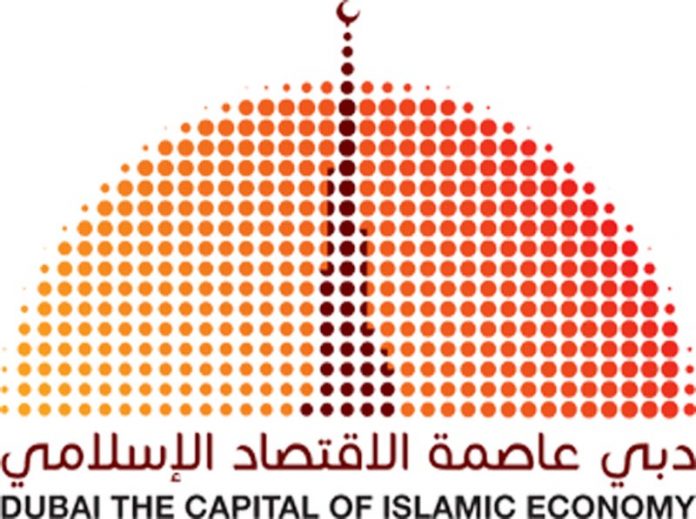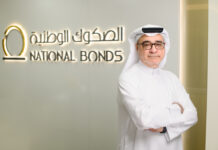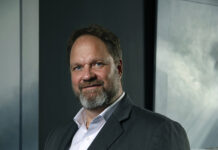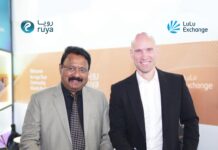Dubai Islamic Economy Development Centre (DIEDC) recently held its fourth and final board meeting for 2020, and approved the Centre’s work plan for 2021 The meeting was chaired by His Excellency Sultan bin Saeed Al Mansouri, Chairman of DIEDC, and drew the participation of the board members, who reviewed updates on the initiatives launched in 2020, and proposed a series of new initiatives that will roll out in 2021.
Dubai Driving Positive Transformation
His Excellency Sultan bin Saeed Al Mansouri noted that the Islamic economy is a pillar of the national economy. He added that its growth is testament to the vision of His Highness Sheikh Mohammed bin Rashid Al Maktoum, and is particularly significant, amid the shifting forecasts for 2021, and the unprecedented circumstances the world finds itself in today as it combats the economic impact of the COVID-19 pandemic.
His Excellency Sultan bin Saeed Al Mansouri said: “The success of DIEDC’s initiatives reinforce the Islamic economy’s role as a key driver of the national economy and of Dubai, as a global capital of Islamic economy. As the world begins to recover from the COVID-19 pandemic and seeks lucrative and sustainable investment opportunities, we have the responsibility to leverage Dubai’s solid economic infrastructure and secure environment in making a positive change in the coming year.”
Furthermore, His Excellency stressed that DIEDC will continue implementing its refreshed strategy and is confident that the upcoming year will see the achievement of many more successful milestones for the Islamic economy. He commended the UAE’s overall ranking among the top three countries in the Global Islamic Economy Indicator and attributed the success to the efforts of DIEDC and its strategic partners.
Opportunities from the Islamic Economy
His Excellency Essa Kazim, Governor of the Dubai International Financial Centre (DIFC) and Secretary General of DIEDC, said: “The Islamic economy has proven its vitality and registered a tangible impact in developing economies across the globe. Dubai’s own economic model, put forward early on, carefully factored in the shifts worldwide and the need to focus on the Islamic economy to ensure sustainable progress.”
He noted that Dubai’s ability to benefit from the Islamic economy ecosystem’s opportunities in the very early days reiterates the vision of the nation’s wise leadership, and the accuracy of its forecasts.
His Excellency emphasised that the future of the Islamic economy is promising and highlighted the need to continue to focus on the opportunities it presents.
The Islamic Economy is an Active Partner
For his part, Abdulla Mohammed Al Awar, CEO of DIEDC, said: “Dubai has been able to provide the Islamic economy with the infrastructure required to shape a thriving ecosystem, positioning the emirate as a preferred destination for all activities focused on growing the Islamic economy. The Islamic economy has proven its resilience in accommodating the fluctuations that have stricken global economies.”
Al Awar added: “DIEDC’s key role is to ensure equitable development and growth of the Islamic economy sectors. We are confident about executing all planned initiatives in 2021, and further advancing initiatives that were previously launched.”
UAE among Global Leaders in Islamic Economy
During the board meeting, Abdulla Al Awar reviewed the progress and outcomes of DIEDC’s initiatives in 2020 and outlined the planned initiatives for 2021. He highlighted the launch of the State of the Global Islamic Economy (SGIE) Report 2020/21, which ranked the UAE among the top three leaders worldwide in Islamic economy in the Global Islamic Economy Indicator.
The eighth edition of the SGIE Report was launched in Dubai, with follow-up virtual launch events organised in 14 cities across the globe.
GIES Virtual Series
With the decision to reschedule the fifth edition of the Global Islamic Economy Summit (GIES 2021), under the directives of His Highness Sheikh Hamdan bin Mohammed bin Rashid Al Maktoum, the Dubai Islamic Economy Development Centre, in collaboration with GIES’ strategic partners, organised a series of six virtual sessions – comprising workshops, panel discussions, webinars, and more. The sessions drummed up support for the upcoming edition of GIES next year – with preparations already well underway.
Unified Global Legislative Framework for Islamic Finance
In May 2020, the UAE Ministry of Finance, in partnership with the Islamic Development Bank (IsDB) and DIEDC, announced the launch of a new initiative to create a unified global legislative framework for the Islamic finance sector, called The Global Islamic Finance Code. The steering committee was approved and held its first meeting in November 2020 including the participation of several key global Islamic Finance bodies. Furthermore, the second phase of the initiative that focuses on drafting sections of the law, has also commenced.











